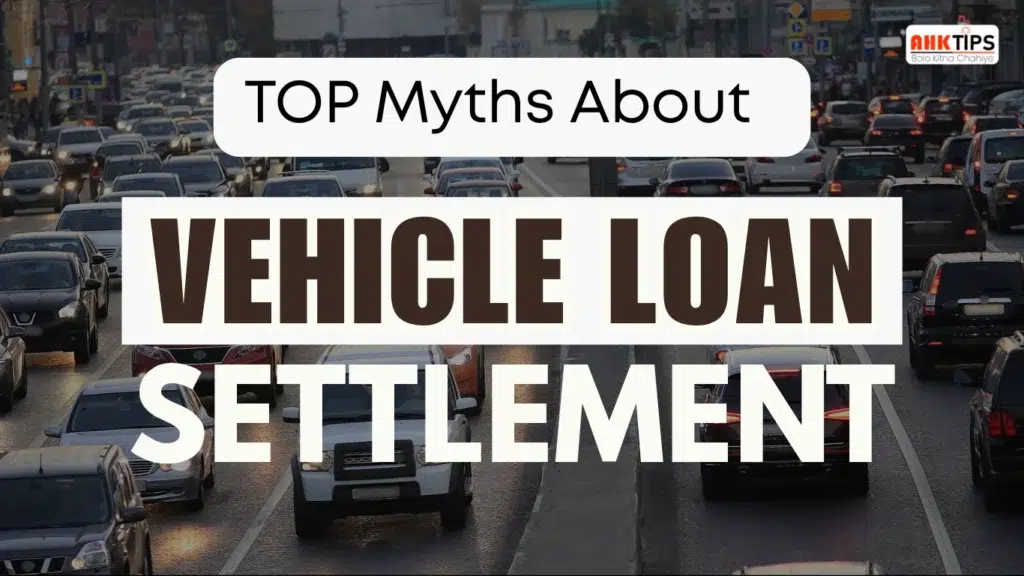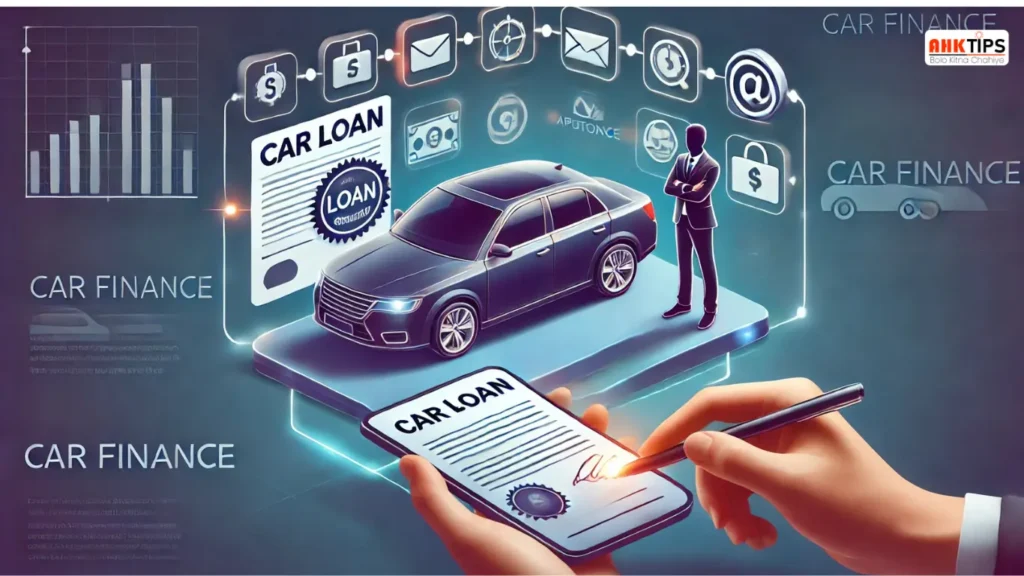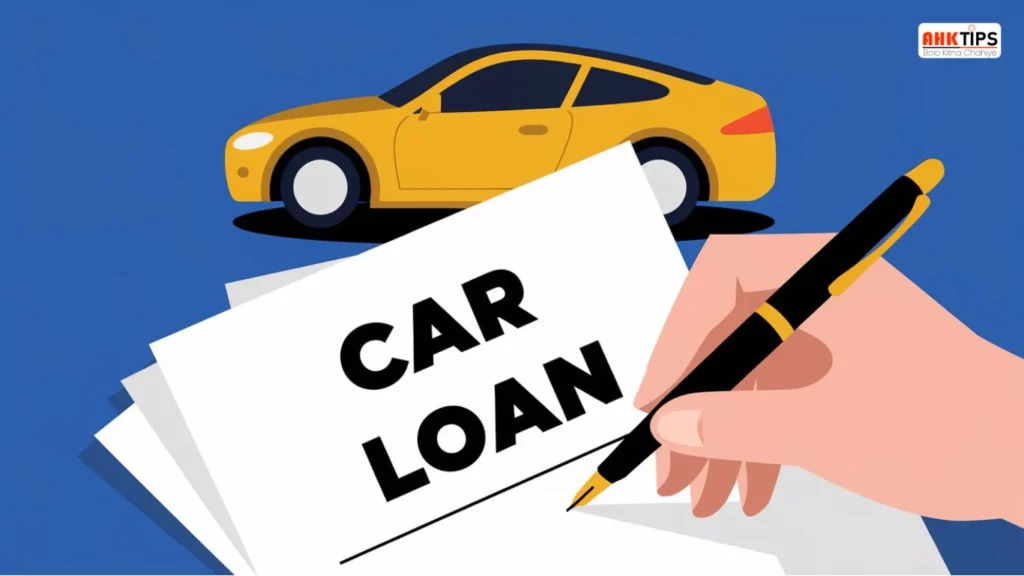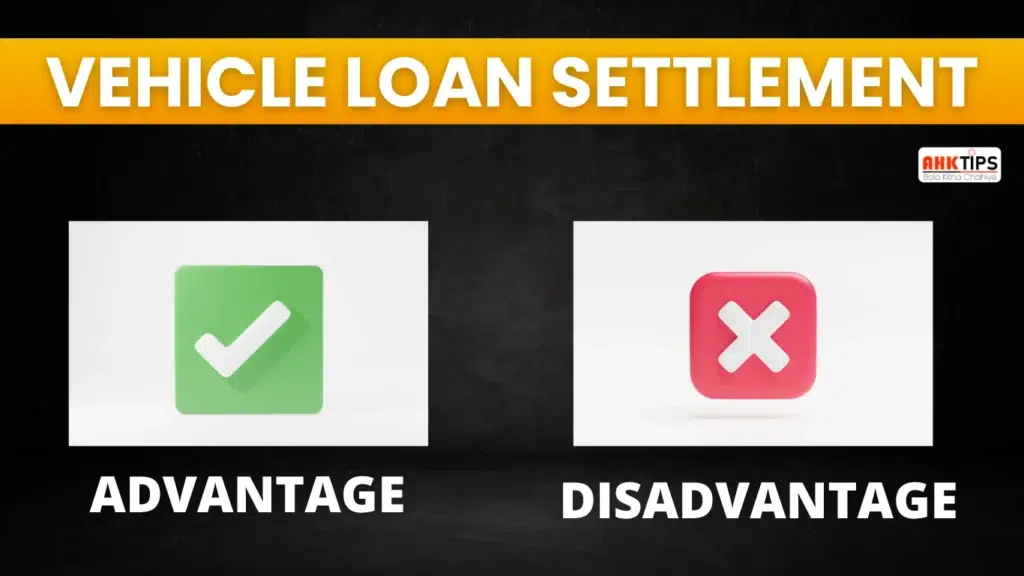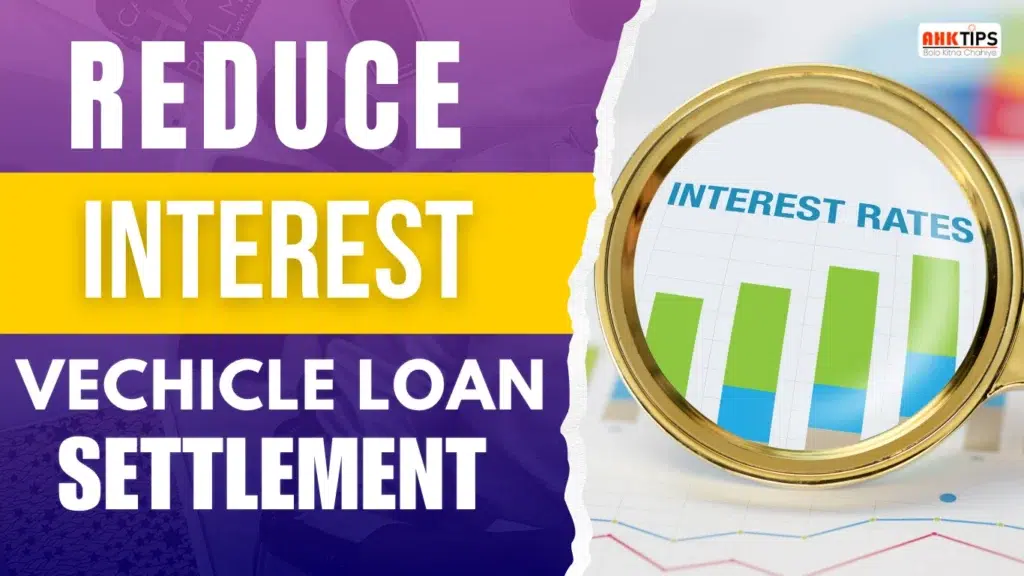Summary
Stipulating a vehicle loan does not always affect your credit as poorly as some think. Although a “settled” status will put a dent in your credit score, the severity of the impact depends on your history and the settlement terms you agreed to. Some myths—like a settlement hurting credit for years or eliminating all debt—are not accurate. Settling may help you get quick relief from debt or stave off repossession while you wait for better times to come, but it could also result in a tax bill or long-term credit damage. Unlike settlement, refinancing doesn’t hurt your credit and may even improve it. If done wisely, loan settlement can be helpful, but it’s important to know when it’s the right option and how to minimise the negative outcomes.
Introduction
Many people mistakenly believe that settling an auto loan is an action that will ruin your credit score for good. But the reality is much more complicated than the myths that people believe. While settling a loan can impact your credit, the extent of that impact will depend on a variety of circumstances, such as your payment history before the settlement and how that settlement was reported to credit bureaus. Many other people also confuse loan settlement with auto loan refinancing, even though they are two completely separate options for dealing with auto loan debt. This article explains the myths, realities, pros, and cons of settling a vehicle loan, and how it truly affects your credit score. It also covers how settlement compares to refinancing and whether settling helps you save money. Understanding the truth will help you make better financial decisions and avoid unnecessary fear or mistakes.
Debunking Common Myths: Does Settling a Vehicle Loan Damage Your Credit Score?
A lot of people think that settling a car loan will always hurt your credit score a lot. People often think that settling a loan will affect your credit, but the truth is more complicated than that. If you know the facts about the myths and how they affect your credit score, you might be able to make a better choice about settling a debt.
Common Myths About Settling a Vehicle Loan
Myth 1: Settling a Vehicle Loan Always Drastically Lowers Your Credit Score
A lot of people believe that paying off a car loan will immediately hurt their credit score. Indeed, settling a debt will usually hurt your credit score, but the effect can be varied depending on a variety of factors.
In some cases, the damage could not be as terrible if your credit score is already bad. Also, if you have other solid credit practices, like always paying your loans and credit cards on time, your score might not drop as much as you expect.
Myth 2: Settling a Loan Will Completely Ruin Your Credit for Years
Another common mistake is thinking that paying off a debt will affect your credit report for good. Your credit report will show a settled auto loan for up to seven years, but that doesn’t mean you can’t improve your credit. A “settled” status does suggest that you didn’t pay back the whole amount, which could damage your score.
It’s important to remember that a settlement will be on your credit report, but it will have less of an influence over time, especially if you keep managing your money well and having good credit behaviour.
Myth 3: Settling a Loan Means the Lender Will Completely Wipe Out Your Debt
Some people imagine that if they pay off a loan, the lender will forgive the whole thing without any problems. A settlement does entail that the lender agrees to take less money to close the loan, but it’s not always as simple as merely “wiping away” your debt. The IRS can even think that the amount forgiven in a settlement is taxable income.
A loan settlement doesn’t mean that the lender will provide you with a good report on the loan’s condition either.
The Truth About How Settling a Vehicle Loan Affects Your Credit Score
There are consequences to settling a car loan, but they can be different for each person depending on their particular money situation and how the settlement is handled. You need to know this:
The Effect of a Settlement on Your Credit Score
Depending on what you agreed to, the lender can declare that the account is “settled,” “settled for less than owed,” or “paid in full” when you pay off a car loan. Most of the time, a settlement will hurt your credit score, but it depends on your overall credit history.
If you were already behind on your loan payments, the settlement could not have as great of an effect because those late payments have already harmed your score. If the loan was in good standing, though, and you opt to settle for less, it could harm your credit even more.
How to Minimise the Damage
Usually, a settlement will hurt your credit score, but there are things you may do to make it less bad:
- Talk About the Terms: Before you agree to a settlement, ask the lender to change the status of the loan from “settled” to “paid in full.” This could lessen the damage to your credit score.
- Keep Paying Your Other Accounts: If you have a history of paying your other bills on time, it might help decrease the negative effects of the settlement on your credit report.
Check Your Credit Report: After the settlement is over, you should check your credit report often to be sure it is accurate. If there are any disparities, fight them to keep your credit from becoming worse.
When to Consider Settling a Vehicle Loan
Paying off a car loan can affect your credit score, but sometimes it’s still the smartest thing to do. For example:
- If you might lose your home and can’t pay off the rest of the payment, a settlement might be a way to save your credit from getting worse.
- A settlement might help if you’re having a lot of difficulties with money and can’t keep making payments, even if it harms your credit in the short term.
It could be wiser to settle a car loan in some cases than to keep skipping payments or have the car taken back.
Understanding the Reality of Settling a Vehicle Loan
There are some wrong ideas about settling vehicle debts that might make you worry for no reason. Paying off a loan might indeed harm your credit score, but it’s important to remember that the effects aren’t always as harsh or long-lasting as some people think. If you negotiate your settlement conditions, keep a watch on your credit, and keep paying your other payments on time, you may be able to mitigate the unfavourable effects and get back on track financially.
Settling a Vehicle Loan vs Refinancing: Clearing Up the Myths
A lot of people who have car loans don’t understand the difference between “settling” a loan and “refinancing.” Both choices are meant to help with debt, but they are very different from each other. Knowing about these distinctions will help you choose the best financial option for you.
What is Settling a Vehicle Loan?
When you settle a vehicle loan, you talk to your lender about paying down the loan for less than what you owe. This usually happens when you can’t keep making your normal loan instalments because you’re having money problems.
In a loan settlement, the lender agrees to accept a smaller lump sum payment as complete payment of the obligation, which means they are forgiving the rest of the balance. But paying off a debt isn’t always easy, and it often requires negotiating. The lender needs to be sure that paying off the debt is preferable to taking alternative steps, such as repossession or going to court.
The Key Features of Loan Settlement
Lower Payment: The major reason to settle a loan is that you might be able to pay less than you owe. This can help people who are having trouble with debt a lot.
Effect on Credit: Paying off a debt can stop you from having to make more payments, but it will probably hurt your credit score. Future lenders may regard the loan as “settled” or “paid for less than owed,” which could be a bad sign.
Legal ramifications: Sometimes, settling a loan can have tax ramifications since the IRS may see forgiven debt as taxable income. Before you do anything, always talk to a tax specialist.
What is Refinancing a Vehicle Loan?
It’s a whole separate process to refinance a car loan. Refinancing is getting a new loan to pay off the old one, not negotiating a lower payment. The main purpose of refinancing is to get better loan terms, including a lower interest rate, a longer payback time, or a cheaper monthly payment.
Refinancing doesn’t get rid of your debt like settlement does, but it might make it easier to handle by changing the conditions of your original loan.
The Key Features of Loan Refinancing
- Better Loan Terms: Refinancing may allow you to lower your monthly payments, reduce your interest rate, or extend the term of the loan, making it easier to manage.
- Effect on Credit: Refinancing can either have no effect or a favourable effect on your credit score because it demonstrates that you are responsibly handling your debt.
- No Debt Forgiveness: Refinancing doesn’t forgive any of the debt, unlike settlement. You will still have to pay back the full loan amount, but the conditions will be different.
Settling a Loan vs Refinancing: The Key Differences
Debt Forgiveness vs. New Loan
The biggest difference between settling a loan and refinancing is that when you settle a loan, you agree to forgive part of your debt. When you refinance, you only change the terms of your current debt. In a settlement, the lender agrees to accept less than what is owed. In a refinancing, the borrower takes out a new loan to pay off the old one without lowering the sum.
Impact on Your Credit Score
If the lender says that the debt was resolved for less than what was outstanding, it usually affects your credit score. On the other hand, refinancing could help your credit score if it lowers your payments or improves your credit utilisation ratio. Refinancing might help you rebuild your credit as long as you keep making your payments on schedule.
Financial Situation Considerations
If you’re having trouble making your loan payments and are in a tough financial situation, debt settlement might be a good alternative. However, it can hurt your credit and have other long-term effects, such as tax problems. On the other hand, if you have a consistent income and strong credit, refinancing could help you get a better deal on your current loan. This would make it easier on your finances without hurting your credit score.
Which Option is Right for You?
Both settling a vehicle loan and refinancing are meant to help people with their automobile debt, but they do it in different ways. If you’re having trouble making payments and are in a financial bind, settlement might be an option to think about, but it has its problems. Refinancing can be a better choice if all you want to do is lower your interest rate or change the conditions of your loan. Always look at your finances and think about talking to a financial counsellor before choosing what to do.
Can Settling Your Vehicle Loan Save You Money? Myth vs Reality
A lot of people in India who have auto loans worry if paying off their loans early could save them money. If you’re having trouble making payments, the concept of bargaining with a lender to pay less frequently sounds good. But the idea that settling a loan usually saves money is more of a myth than a fact. Let’s look more closely at the money side of settling a car loan and see if it may help you save money.
What is Vehicle Loan Settlement?
Vehicle loan settlement is when the borrower and lender agree that the borrower will pay off a part of the loan total, usually as a lump sum, in exchange for the lender forgiving the rest of the debt. In basic terms, the lender will agree to take a smaller amount to finish the deal as long as you can pay that amount in full. This may seem like the best approach to get out of debt quickly, but the truth is more difficult.
The Vehicle Loan Settlement: Save Money Myth
Many people who borrow money think that paying off their debt will always save them money right away. You can wind up paying less than the full amount owing, but paying off your loan isn’t always the wisest financial choice. Here’s why:
Interest and Fees Might Still Apply
The main purpose of settling a car loan is to lower the amount of money you still owe. But during the settlement procedure, the loan’s interest generally keeps adding up. Even if you negotiate a lower sum, you may still have to pay interest on the part of the loan that you haven’t paid back yet. Also, the lender may charge specific fees for executing or managing the settlement, which could cancel out any savings you might have made.
Tax Implications on Forgiven Debt
If a lender in India forgives part of your car loan, the sum may be seen as taxable income. This means that even while you might be “saving” money on the loan balance, you might have to pay taxes on the debt that was forgiven. You must tell the tax authorities about the amount of debt that was forgiven. The lender may send you a statement or paperwork that shows this. This could lead to taxes that you didn’t foresee, which would make the loan settlement less useful than it seems at first.
The Pros of Settling a Vehicle Loan
Some fees and dangers come with settling a vehicle loan, but certain benefits make it appealing to some borrowers.
Quick Debt Relief
For people who are having a lot of trouble with money, paying off a car loan can help right away. You might be able to complete the loan quickly by paying a smaller lump sum instead of making monthly instalments. This can help you relax and give you a new start with your money.
Avoiding Repossession
If you might lose your car because you haven’t made your payments, paying off the loan might help you avoid that. If you can work out a deal with the lender, you might be able to keep the car and keep your credit score from getting worse.
The Reality of Loan Settlement
Settling a car loan could seem like an easy way out, but in reality, it often has long-term effects that make it not the best choice for your wallet.
Negative Impact on Credit Score
When you settle a loan, credit bureaus usually say it was “settled for less than owed.” This might affect your credit score. This damage to your credit score that lasts a long time can make it harder to get loans or credit cards with low interest rates.
It Doesn’t Eliminate Debt Completely
You will still have to pay any interest and fees that are still owed after the settlement. In other situations, the lender may want you to keep making payments on the smaller loan amount until it is paid off. In the long run, this could still be a big financial burden.
When Is Loan Settlement Worth Considering?
If you’re having trouble paying your bills and don’t have any other way to keep up with your car loan payments, settling it can be a good idea. But before you choose this path, you should think about all the effects it could have on your credit, taxes, and any other expenses that might come up. If you can still afford your normal loan payments but want better conditions, refinancing can be a better alternative to look into.
If you’re not sure about your finances, talking to a financial counsellor or loan specialist can help you understand your alternatives and prevent making mistakes that will cost you a lot of money.
Conclusion
There are risks and rewards associated with the vehicle loan settlement. Understanding these risks and rewards can give you the ability to make better decisions. It’s correct that a settlement will negatively affect your credit score and appear as a negative event, but it is not the end of the world. You can improve your score over time due to good credit behaviour. A settlement can also save you from repossession and provide you with quick relief if you are in financial distress. However, interest, fees, or tax implications may eat up any savings. The opposite may apply; if you are looking for better loan terms and you’re not focused on the credit negative impact, then refinancing may be best for you. Always think about both options, negotiate your settlement terms very carefully and order a copy of your credit report.
FAQ’s
Not all the time. Your credit score will change based on how you paid your obligations in the past and how the settlement is reported.
No. Settlement is a technique to smooth things over and pay less than you owe. When you refinance, you get a new loan with better terms than the one you had before.
Not all the time. You might still have to pay interest, fees, or even taxes on the amount that was forgiven, which might eat into your savings.
A resolved loan can be on your credit report for up to seven years, but if you take care of your credit, it won’t hurt your score as much over time.

